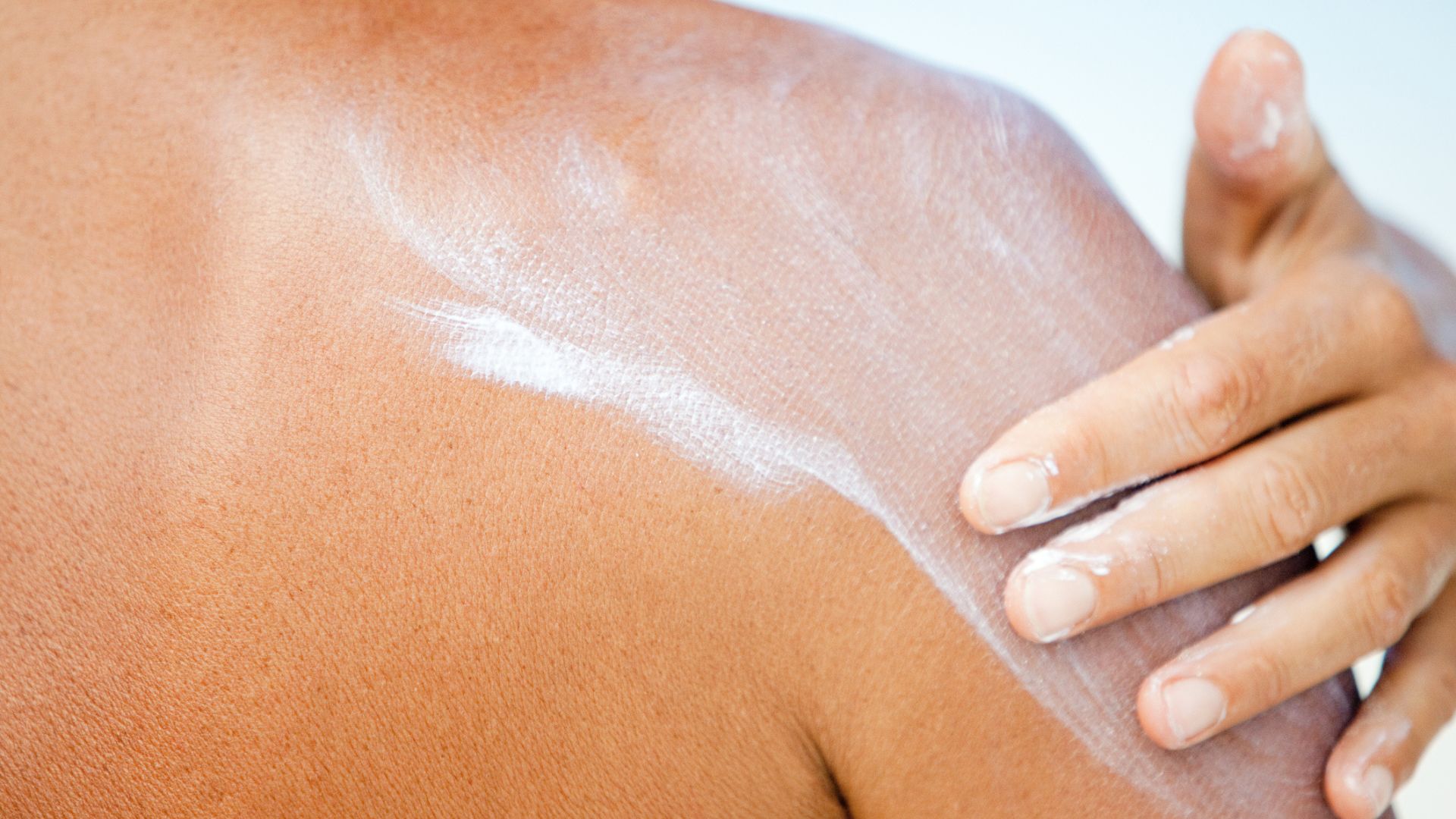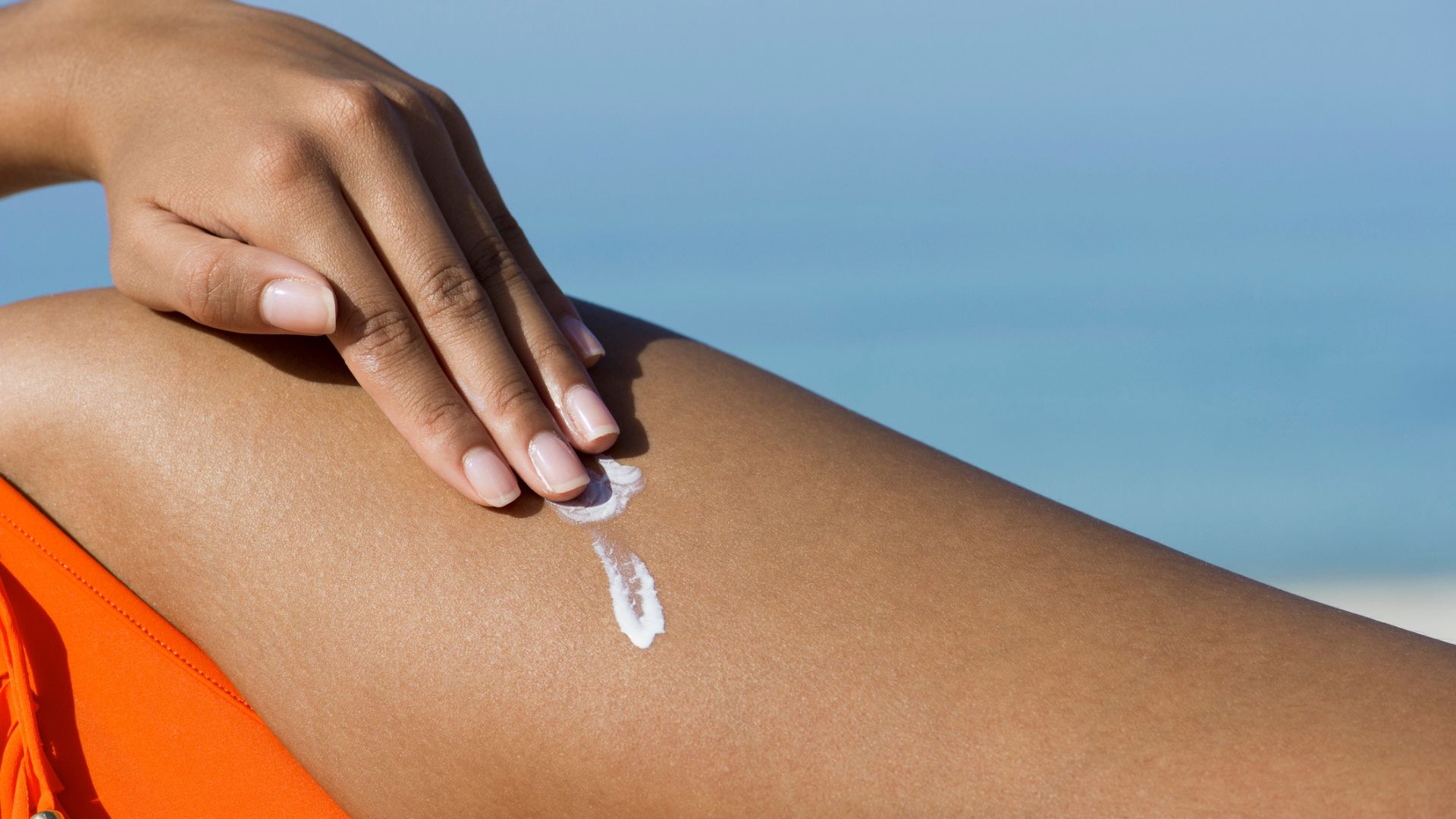Mineral vs chemical sunscreen: What’s the difference?
Torn between mineral vs chemical sunscreen and wondering what's the best for your skin type? We spoke to experts to break down the pros and cons of each


Confused about the difference between mineral vs chemical sunscreen?
These terms, plus acronyms like SPF and UV, can make sun protection feel really complicated. But actually, it’s quite simple. To protect our skin from damage from the sun, we need to be wearing our best facial sunscreen every single day. And if your body is on show, you’ll need to be protecting that too. Your sunscreen will use either chemical or mineral filters to shield the skin.
But what does that actually mean and is one type of filter better than the other? We break down everything you need to know, plus whether mineral or chemical sunscreen is best for you.
Mineral vs chemical sunscreen: Our expert guide
What are mineral and chemical sunscreens?
Mineral and chemical sunscreens are two types of sun protection that use different types of UV filters. They are designed to shield skin from UVA and UVB rays, both of which can cause damage to the skin resulting in things like sunburn, hyperpigmentation, accelerated aging, and skin cancer.
You might also hear mineral sunscreen referred to as inorganic sunscreen, and chemical sunscreen referred to as organic sunscreen. Before you get too confused, this is nothing to do with vegetables and is a scientific term that indicates whether or not the filters contain carbon bonds. Chemical sunscreen does contain carbon bonds, which is why it’s called organic, and mineral sunscreen doesn’t, which is why it’s called inorganic.
It’s good to note that instead of choosing between mineral or chemical sunscreen, some SPFs are formulated with both chemical and mineral filters.
Mineral vs chemical sunscreen: Key differences
Mineral and chemical sunscreens have the same skin-protecting aims but achieve them through different means. These are the key differences between mineral vs chemical sunscreens:
Sign up for the woman&home newsletter
Sign up to our free daily email for the latest royal and entertainment news, interesting opinion, expert advice on styling and beauty trends, and no-nonsense guides to the health and wellness questions you want answered.
- How they work. Traditionally, mineral and chemical filters were thought to work in two distinctively different ways. It has been accepted that chemical filters absorb UV rays and convert them into heat, while “mineral sunscreens were previously thought to reflect and scatter UV rays and visible light,” explains consultant dermatologist and La Roche Posay ambassador Dr. Hiva Fassihi. “But more recently, data has demonstrated that mineral sunscreens also absorb UV rays.” So really, they work more similarly than previously thought.
- The amount of choice. There are currently only two mineral filters that exist – zinc oxide and titanium dioxide. In comparison, there are many different chemical filters available, but not all are approved in all territories. The US, UK, and Australia all have varying rules when it comes to sunscreen.
- Texture and feel. “Chemical filters are known for being lightweight and a little more malleable in different SPF formulas, allowing them to glide onto the skin effortlessly,” says co-founder of sunscreen brand Ultra Violette, Ava Matthews. “They’re generally more pleasant to use, but that’s just my personal opinion.” In comparison, mineral filters tend to be thicker and feel heavier on the skin. They don’t spread quite so well either. “Mineral filters can be difficult to formulate into a sunscreen formula that feels and looks pleasant on the skin,” Matthews adds. “Although increasingly less so these days with innovations in SPF.” The next generation of mineral filters coming through are on par with chemical sunscreens when it comes to texture.
- Finish on the skin. Mineral sunscreens tend to be quite mattifying on the skin as the raw filters are powdery in texture. Chemical sunscreens however are smoother which leaves a dewier effect on the skin.
- How quickly they work. Because they’re physically blocking UV, mineral filters provide instant protection to the skin. Chemical filters, on the other hand, take around 20 minutes to get to work.
- Suitability for all skin tones. “The two main filters used in mineral sunscreens are both a white powder in their raw farm,” says Matthews. “It’s hard to avoid a white cast as they’re effectively white powders before they’re made into sunscreen.” They scatter rays when under light, which is why they show up as white on deeper skin tones. “Individuals with darker skin tones may find that mineral sunscreen leaves a noticeable white cast on their skin.” says medical consultant, skin expert, and founder of the award-winning Adonia Medical Clinic, Dr. Ifeoma Ejikeme. “But products are changing all the time and with nano-technology, there are some that leave less of a cast.”
- Suitability for all skin types. “I find that mineral sunscreens tend to work best for those with very sensitive skin and concerns like eczema, perioral dermatitis, and rosacea,” says skin expert Dr. Sam Bunting. As they’re lighter in texture, chemical sunscreens tend to be best for oily, combination, and spot-prone skin.
- Reef safety. Particular chemical filters called oxybenzone and octinoxate have been proven to have a negative effect on marine life. If you’re swimming close to coral and looking for one of the best reef-safe sunscreens, mineral sunscreen is considered the most responsible choice.

Who should use chemical sunscreen?
If you avoid sunscreen because you find it thick, heavy, or uncomfortable to wear, then chemical sunscreen is your best starting point. “Chemical sunscreens are easy to apply and due to their lightweight texture are easier to wear – mostly by dry, normal, oil, and combination skins,” says Matthews. Some feel more like your best lightweight moisturizer than a sunscreen. “In terms of tones, any skin tone should be able to wear a well-formulated chemical SPF and they are mostly invisible on the skin. More melanated skin tones would struggle to wear chemical filters without a white cast, and in this case sometimes combination mineral and chemical formulations are best to offset this.”
In general, chemical sunscreens tend to be crowd-pleasers compared to mineral sunscreens, which is really important when you remember that the best SPF for you is the one you actually want to apply and wear. They’re certainly the best sunscreens for acne-prone skin.
Who should use mineral sunscreen?
“Mineral sunscreens tend to be favored by those with sensitive skin,” says Matthews. “This is because the key filters found in most mineral sunscreens (zinc oxide and titanium dioxide) are less allergenic than some (but not all) chemical UV filters. Skin conditions like rosacea, eczema, and psoriasis are all counted beneath the sensitive skin umbrella, and very dry skin can come under too. However, it is important to note that “sunscreen allergy is very uncommon, with a prevalence of less than 1%,” adds Matthews. Sunscreen annoying your eyes is more common, and some formulas can really irritate. “Those with sensitive eyes are better suited to mineral sunscreen,” says Bunting.
Mineral sunscreen is not only the best sunscreen for sensitive skin but also great if you’re in a hurry. While chemical sunscreens take around 20 minutes to work, a mineral filter will begin blocking UV rays from the moment it’s applied to the skin. They often tend to be more difficult to remove too (so you’ll need your best cleanser), which although can be annoying at the end of the day, can mean it has slightly better staying power.
Does mineral sunscreen last longer than chemical?
There’s very little in it when it comes to how long a mineral vs chemical sunscreen will protect your skin. “They both last the same amount depending on the level of UV protection,” says Matthews. “You’ll probably get higher UV protection in chemical SPF formulations though. This doesn’t mean longer coverage, but just superior UVA protection in general.” However, for Dr. Ejikeme, mineral sunscreen has a slight upper hand. “Mineral sunscreen tends to be more stable and provides longer-lasting protection once applied to the skin,” she explains. “It starts working immediately upon application, whereas chemical sunscreens need some time to absorb into the skin before becoming fully effective.” All sunscreens need to be reapplied regularly (every two or so hours) to keep your skin safe. If you don’t know already, it’s worth learning how to reapply sunscreen over makeup.
As for how long mineral vs chemical sunscreens last in the tube rather than on your skin, it’s a similar story. Mineral sunscreen does tend to be more stable and therefore can have an ever-so-slightly longer shelf life. Whichever type you’re using it’s so important to check the date on the back of the pack as sunscreen does expire. Some only last for 12 months, which means that if you pick up a bottle you opened last summer, then you won’t be getting proper protection. It’s one of the most common sunscreen mistakes.

Is chemical sunscreen bad for the environment?
It’s not as cut and dry as saying that chemical sunscreen is bad for the environment, as there are lots of different filters within the category. It’s a bit like saying that all trousers are blue. Some might be, but there are other shades too. There are two particular chemical filters called oxybenzone and octinoxate which have been shown to have a harmful effect on marine life. As a result, most brands have responded by removing them from their formulas. “There is evidence that chemical sunscreens are being washed into the sea and are damaging coral reefs, mostly in Australia,” explains Dr. Fassihi. “While it’s not a huge concern in the UK, it’s something many companies are working on, and new research is carried out every day to find safer fun protection ingredients for us and the environment.” If this is a key factor for you in choosing a sunscreen, stick to mineral filters. But, be aware that even mineral filters may have some negative environmental impact.
Mineral vs chemical sunscreen: The w&h verdict
The ability to shield your skin is the most important part of any sunscreen formulation, and “both mineral and chemical sunscreens are effective at protecting the skin from harmful UV rays,” says Dr. Ejikeme. “It’s crucial to choose a sunscreen with broad-spectrum protection and an appropriate SPF rating for your skin type and level of sun exposure.” What SPF sunscreen should I wear on my face every day? Ideally SPF50, but SPF30 will do. Beyond that, it’s down to your own personal preference. If your skin is sensitive, very dry, or prone to reactions, then mineral is best. On the other hand, if it’s oily or a combination, you’ll prefer the barely-there texture of a chemical sunscreen. Mineral sunscreen will work instantly, while chemical will take around 20 minutes to start protecting your skin.
Finally, chemical sunscreens are undetectable on your complexion and therefore best for deeper skin tones than mineral filters which can leave a white cast.
Jess Beech is an experienced fashion and beauty editor, with more than eight years experience in the publishing industry. She has written for woman&home, GoodtoKnow, Now, Woman, Woman’s Weekly, Woman’s Own and Chat, and is a former Deputy Fashion & Beauty Editor at Future PLC. A beauty obsessive, Jess has tried everything from cryotherapy to chemical peels (minus the Samantha in Sex and The City-worthy redness) and interviewed experts including Jo Malone and Trinny Woodall.
-
 Unforgettable date ideas to make a great first impression or rekindle romance
Unforgettable date ideas to make a great first impression or rekindle romanceForget the same old first date formula - these unforgettable date ideas will leave them thinking about you long after you go home
By Natalie Denton Published
-
 Butter yellow might be the colour of the season, but Amal Clooney is making me want to try sunshine shades
Butter yellow might be the colour of the season, but Amal Clooney is making me want to try sunshine shadesSpark some joy by adding some statement yellow pieces to your wardrobe just in time for summer
By Matilda Stanley Published